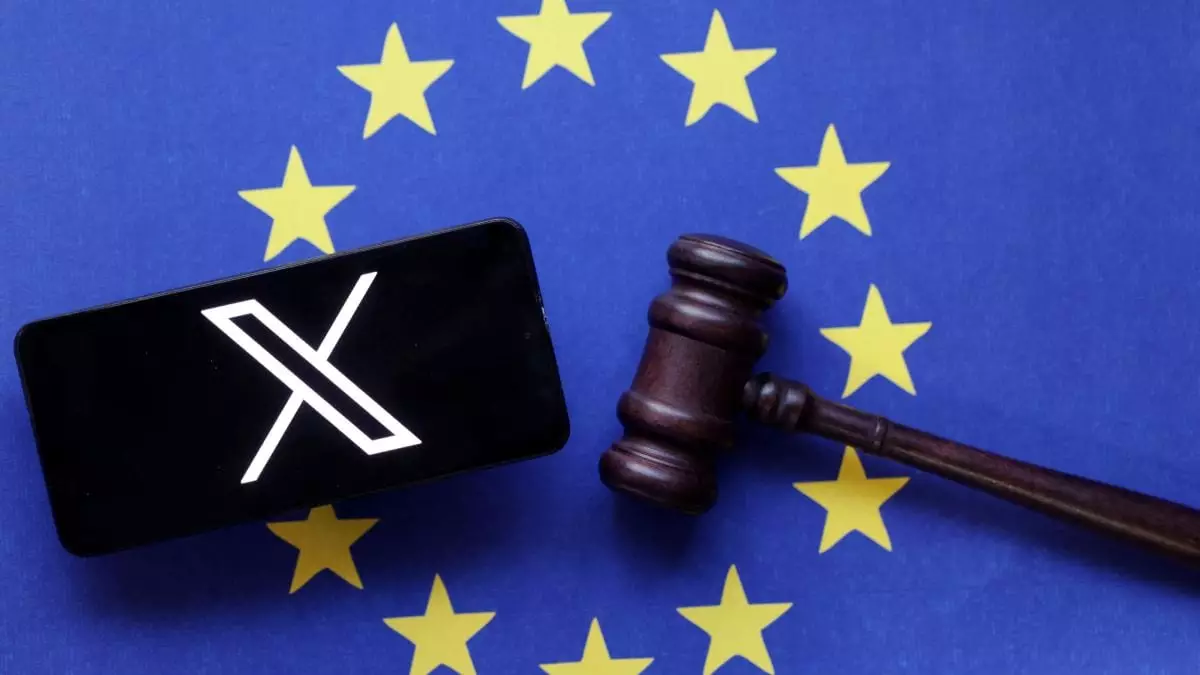In the ever-evolving landscape of social media, the European Union (EU) is intensifying its scrutiny of major platforms, particularly Elon Musk’s X (formerly Twitter), to ensure adherence to its Digital Services Act (DSA). This legislation aims to enhance accountability for online platforms, especially concerning content moderation, which has recently come under fire. The growing concerns surrounding misinformation and the influence of foreign entities raise significant questions about the role of social media in shaping political narratives. As the EU navigates this complex environment, the spotlight falls on Musk and his platform, raising critical issues about transparency, accountability, and the influence of powerful figures in shaping public discourse.
The European Commission has launched a preliminary inquiry into whether X has breached its content moderation obligations under the DSA. Executive Vice President Henna Virkkunen has conferred with various media outlets regarding the extent of the investigation. Since its initiation in December 2023, the commission has accused X of failing to adequately address illegal content and misinformation. These claims also extend to potential violations related to transparency and deceptive practices, which are cornerstones of the DSA’s regulatory framework.
One focal point of the investigation is the live-streamed interaction between Musk and far-right politician Alice Weidel, who is poised to enter political contention in Germany’s upcoming snap elections. This event raised alarms within the EU about whether X’s algorithms were manipulated to favor certain political narratives, which could unjustly influence electoral outcomes. Such allegations not only reflect on the growing intersection of social media and politics but also signal a broader concern about the power wielded by individuals like Musk in shaping public discourse.
The backdrop of this inquiry is significantly influenced by the political climate, particularly with the impending inauguration of President-elect Donald Trump. Musk’s public endorsement of far-right figures is scrutinized amidst heightened tensions concerning election integrity within the EU. Recent reports of foreign interference—particularly from Russia—have amplified suspicions regarding the potential manipulative role of platforms like X in political processes. The public outcry over these issues pushes regulators to take a firm stance, as demonstrated by the EU’s broader investigations into companies like TikTok.
This dynamic illustrates a complex interplay between national sovereignty and digital governance where social media has become a battleground for public opinion and political organization. Regulators justify their actions by stressing the need to protect democratic processes, indicating that digital platforms must not be allowed to function unchecked in a rapidly changing political landscape.
As pressure mounts from EU regulators, a defensive stance has emerged from tech giants, with Musk openly clashing with EU officials. He has expressed intentions to challenge any unfavorable outcomes from the investigation legally, underscoring the tension between the EU’s regulatory ambitions and the operational freedoms traditionally afforded to tech companies. In a broader context, Mark Zuckerberg’s recent comments highlight the concerns within the industry regarding perceived extraterritorial regulation by foreign entities. He likened EU fines to tariffs, suggesting that they infringe on the ability of U.S. companies to compete fairly on a global scale.
This sentiment resonates with many in the tech sector who argue that the EU’s regulatory framework may stifle innovation and undermine international competitiveness. As lobbying efforts intensify, the question remains whether the U.S. government will intervene in support of domestic tech companies facing scrutiny abroad.
The EU’s ongoing investigation into X serves as a pivotal moment in the regulatory landscape surrounding social media. As concerns about misinformation, foreign interference, and the political ramifications of digital platforms come to the forefront, the intersection of technology and governance demands careful consideration. With powerful figures like Musk at the helm of influential platforms, the accountability mechanisms within the DSA will likely undergo significant examination and adaptation.
The anticipation surrounding Trump’s presidency further complicates the scenario, potentially reshaping the dynamics between U.S. tech companies and international regulators. As both entities grapple with the implications of digital engagement, the path to establishing a balanced framework that protects democratic integrity while fostering innovation remains challenging. The outcome of these inquiries may set crucial precedents for the future of digital governance and the role of social media in political discourse across borders.


Leave a Reply